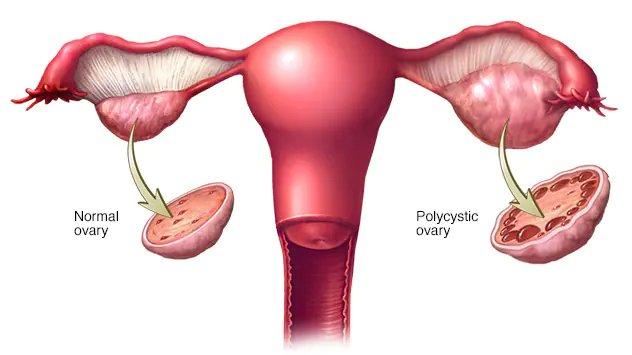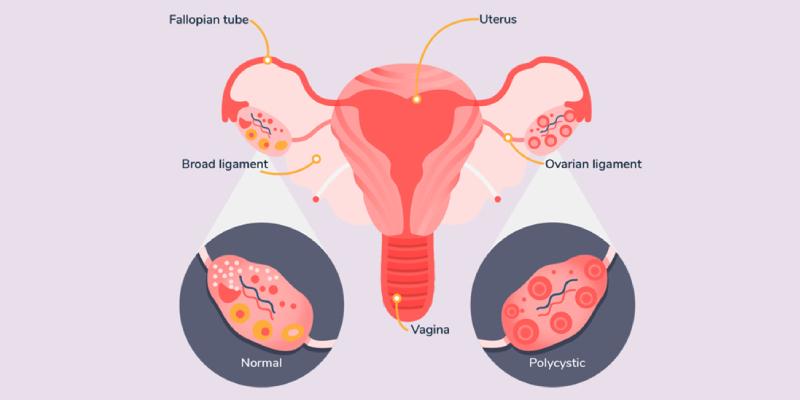Polycystic Ovary Syndrome (PCOS), also referred to as PCOD, is becoming a more prevalent cause for regular alterations in menstrual patterns.
Symptoms of PCOD
Polycystic Ovary Syndrome (PCOS) is a hormonal disorder that affects women of reproductive age. Some common symptoms of PCOS include:

- Irregular periods or no periods at all
- Excessive hair growth on the face, chest, stomach, and back (hirsutism)
- Acne or oily skin
- Weight gain or difficulty losing weight
- Dark patches of skin around the neck, armpits, or groin (acanthosis nigricans)
- Thinning hair or hair loss on the scalp
- Ovarian cysts (fluid-filled sacs) on one or both ovaries
- Difficulty getting pregnant due to irregular ovulation or lack of ovulation.
It is important to note that not all women with PCOS will experience all of these symptoms, and the severity of symptoms can vary widely among individuals.
Treatment of PCOD
Although there is no cure for PCOD, the condition can be managed with certain lifestyle changes.
- Lifestyle changes: Eating a healthy diet and getting regular exercise can help improve symptoms of PCOS, especially weight gain and insulin resistance.
- Medications: Hormonal birth control pills can regulate menstrual cycles and reduce excessive hair growth and acne.
- Counseling: For women with PCOS who experience depression, anxiety, or other mental health concerns, counseling or therapy may be helpful.
- Exercise helps reduce weight, stress and also helps control blood sugar. You could also take up light aerobic exercise, swimming or cycling at a moderate pace.

Treatment for PCOS is often individualized and may require a multidisciplinary approach involving a gynecologist, endocrinologist, nutritionist, and mental health professional.
Experiencing changes in your menstrual cycle? Please call on +91 9962777777 to schedule a consultation.

Dr B.Priya Kalyani
MBBS., DGO, DNB (OG)
Senior Consultant Obstetrician & Gynaecologist

